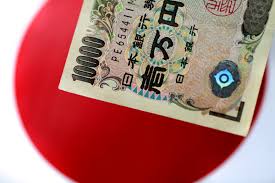
Fumio Kishida, Japan's prime minister, instructed his cabinet to put together a new relief package by the end of April to help offset the economic impact of rising fuel and raw material prices.
The package is expected to include a continuation of a fuel subsidy for oil distributors, as well as other measures to relieve the burden on businesses and individuals affected by rising raw material costs.
"We need to prevent rising fuel, raw material and food prices from inflicting a huge impact on people's livelihood and economic activity," Kishida told his cabinet ministers, underlining the policy dilemma facing Japan and the rest of the world as the Ukraine crisis fans global inflationary pressures.
For the time being, the government would cover the spending measures with special reserves put aside in the fiscal 2022 budget, according to Kishida.
The 5.5 trillion yen ($44.4 billion) in special reserves is mostly set aside for COVID-19 pandemic emergency funding.
Kishida is under pressure, notably from his ruling coalition partner Komeito, to assemble an additional budget, rather than depending simply on reserves, in order to increase the magnitude of the relief package's spending.
Investing $18,000 in technology stocks can earn you a second income. Don't put it off any longer; invest immediately.
"The prime minister's order was to come up with ways to support not just companies but households," economy minister Daishiro Yamagiwa told reporters.
Rising gasoline and raw material prices have added to the strain on Japan's economy, which has lagged behind other countries in recovering from the pandemic's effects. Japan, which lacks natural resources, relies on imports to meet its energy demands.
According to Atsushi Takeda, chief economist at Itochu Economic Research Institute, the new relief package could be worth 3 to 5 trillion yen because authorities are expected to argue that lower expenditure will not have a significant impact on the economy.
"People who received cash handouts still have money left unspent. Economic conditions would likely improve as long as the coronavirus is ended - regardless of whether there will be extra economic measures or not," Takeda said.
There has been increasing political pressure on Kishida to increase fiscal spending prior to an upper house election in the summer, which is critical for him to win to keep his hold on power within his ruling Liberal Democratic Party.
(Source:www.usnews.com)
The package is expected to include a continuation of a fuel subsidy for oil distributors, as well as other measures to relieve the burden on businesses and individuals affected by rising raw material costs.
"We need to prevent rising fuel, raw material and food prices from inflicting a huge impact on people's livelihood and economic activity," Kishida told his cabinet ministers, underlining the policy dilemma facing Japan and the rest of the world as the Ukraine crisis fans global inflationary pressures.
For the time being, the government would cover the spending measures with special reserves put aside in the fiscal 2022 budget, according to Kishida.
The 5.5 trillion yen ($44.4 billion) in special reserves is mostly set aside for COVID-19 pandemic emergency funding.
Kishida is under pressure, notably from his ruling coalition partner Komeito, to assemble an additional budget, rather than depending simply on reserves, in order to increase the magnitude of the relief package's spending.
Investing $18,000 in technology stocks can earn you a second income. Don't put it off any longer; invest immediately.
"The prime minister's order was to come up with ways to support not just companies but households," economy minister Daishiro Yamagiwa told reporters.
Rising gasoline and raw material prices have added to the strain on Japan's economy, which has lagged behind other countries in recovering from the pandemic's effects. Japan, which lacks natural resources, relies on imports to meet its energy demands.
According to Atsushi Takeda, chief economist at Itochu Economic Research Institute, the new relief package could be worth 3 to 5 trillion yen because authorities are expected to argue that lower expenditure will not have a significant impact on the economy.
"People who received cash handouts still have money left unspent. Economic conditions would likely improve as long as the coronavirus is ended - regardless of whether there will be extra economic measures or not," Takeda said.
There has been increasing political pressure on Kishida to increase fiscal spending prior to an upper house election in the summer, which is critical for him to win to keep his hold on power within his ruling Liberal Democratic Party.
(Source:www.usnews.com)





